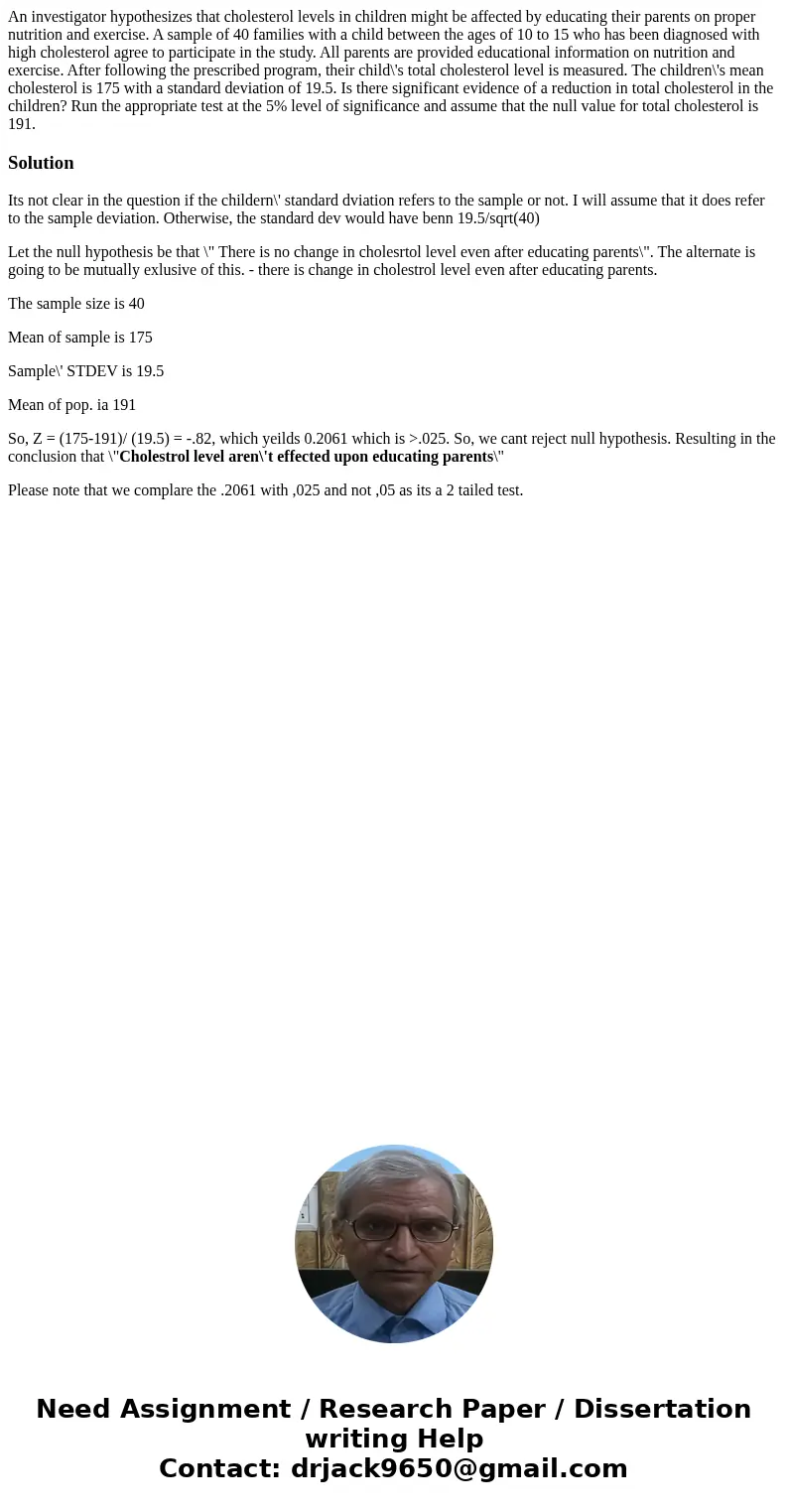An investigator hypothesizes that cholesterol levels in chil
Solution
Its not clear in the question if the childern\' standard dviation refers to the sample or not. I will assume that it does refer to the sample deviation. Otherwise, the standard dev would have benn 19.5/sqrt(40)
Let the null hypothesis be that \" There is no change in cholesrtol level even after educating parents\". The alternate is going to be mutually exlusive of this. - there is change in cholestrol level even after educating parents.
The sample size is 40
Mean of sample is 175
Sample\' STDEV is 19.5
Mean of pop. ia 191
So, Z = (175-191)/ (19.5) = -.82, which yeilds 0.2061 which is >.025. So, we cant reject null hypothesis. Resulting in the conclusion that \"Cholestrol level aren\'t effected upon educating parents\"
Please note that we complare the .2061 with ,025 and not ,05 as its a 2 tailed test.

 Homework Sourse
Homework Sourse